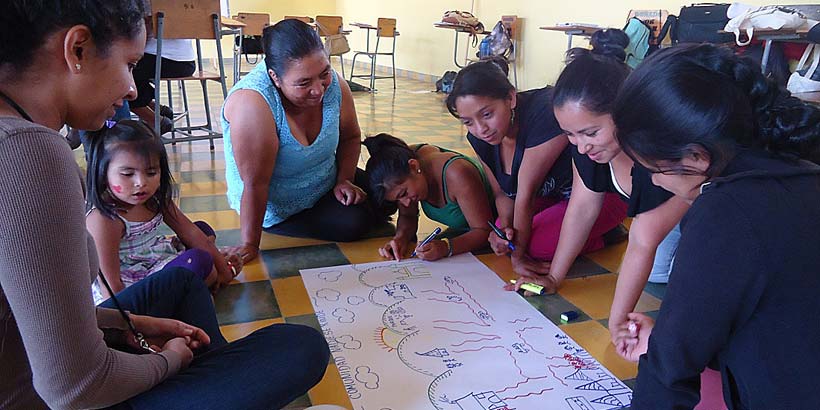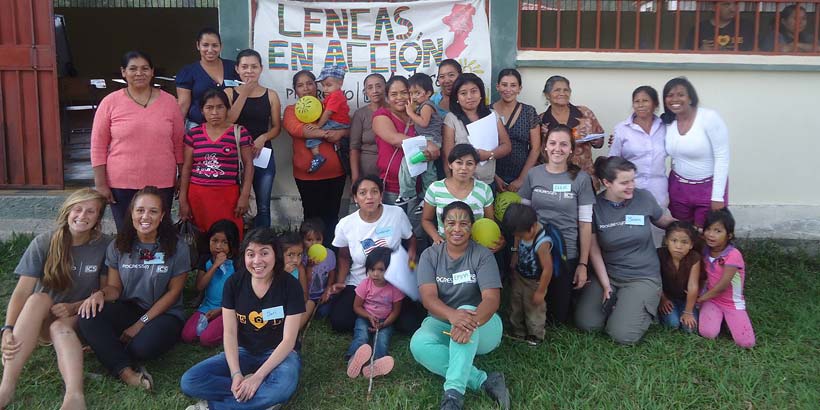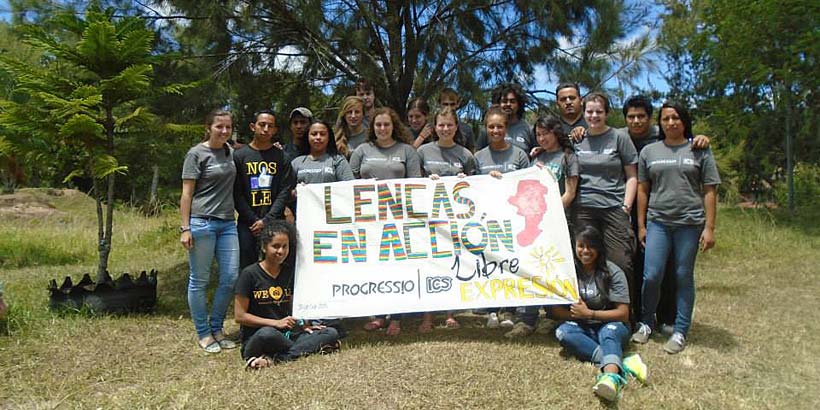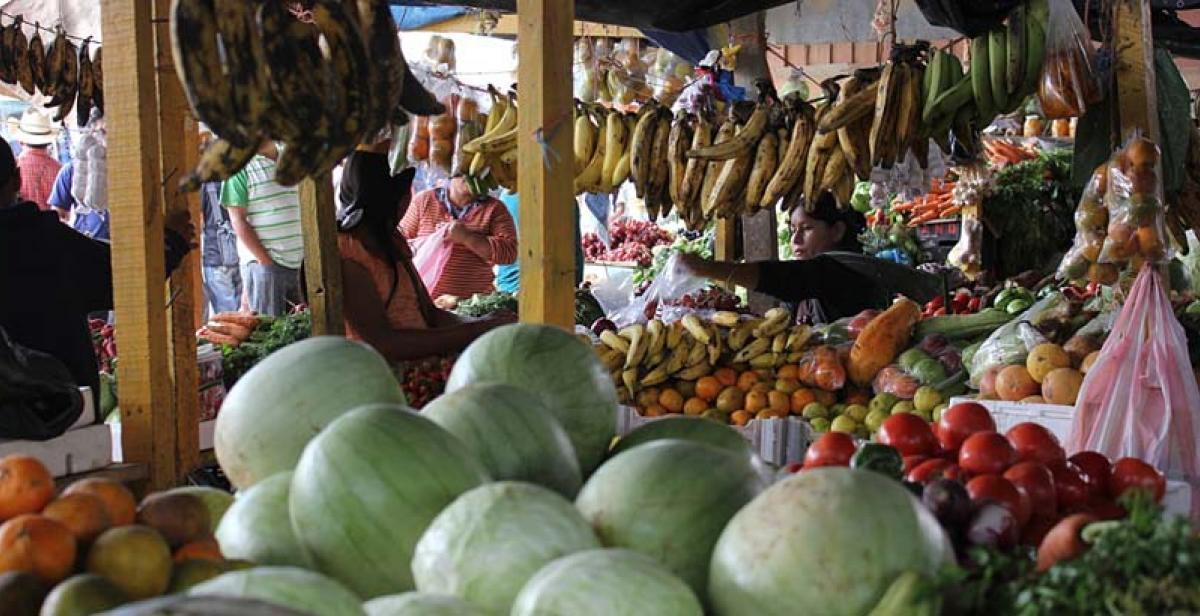Every morning, I sit looking out my host family’s front window, onto the busy street in the centre of La Esperanza. People bustle by: rushing to work, selling vegetables door to door, or just walking around town. In the mornings the buses from the rural communities stop outside our house; they are the old yellow school buses sent from the US, which are crammed with people from the nearby mountains on the inside and toppling with huge bags of produce on the roof. What seems like hundreds of Lenca women climb off the bus, many wearing their traditional dress of beautiful brightly-coloured skirts and headscarves. They wait patiently as the bus men climb on the roof and pass down their huge sacks of products; be that firewood, oranges, potatoes or strawberries, which are all typical things sold in the area. The bus pulls off leaving the women on the street with their sacks, and these tiny, often frail-looking women proceed to heave the sacks on their backs or balance them on their heads, and off they go to the market to sell their fresh produce.
As time has gone on and I continue seeing these women, I have started thinking about who they are and what their background is. I started trying to imagine what a sack of potatoes would mean to one of those women, how much they have put into bringing it that far and how important it is for them to sell it that day in the market. I’ve been lucky enough to work with communities around La Esperanza and I’ve seen their fascinating culture and how they appreciate and take care of the small things in life, and it’s changed my perspective on what’s important.

We’re working with a group of women on a project called Lencas in Action, where the aim is to give them training and confidence to start a microenterprise of selling crafts made from recycled materials. There are high rates of illiteracy among women in the area where we are working, and the general culture is for men to get an education and work, and women to do manual work in the home. There is also a lot of violence against women and high poverty rates, meaning it’s often difficult for women to have independence and to get out of abusive relationships.

When we started giving the workshops, on topics such as women’s rights, female leadership and business skills, I was very focused on the structure of them, the content, how we expressed the topic, and whether we were achieving our target of the number of women expected to come. However, as I relaxed and started to get to know the women, I began to realise why we’re giving the workshops, and what it means to the women to have this opportunity. I started really watching and listening to what they have to say, and I found a group of inspiring, intelligent people, who have had struggles in their lives but are carrying on forward and are excited to take on a new challenge.

Honduras never fails to give the volunteers experiences that provide perspective on the world, through the people that we work with being full of positivity and drive, irrespective of what the situation is around them or what they’ve been through. The inspirational Lenca women of La Esperanza are a shining example of this, and we hope that through our project we can help channel their motivation to learn things that they haven’t had a chance to learn before.
Written by ICS Team Leader Ellie Wason



